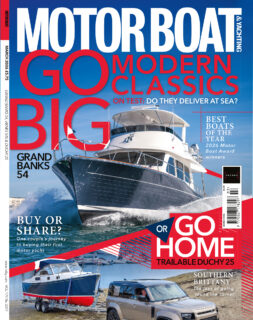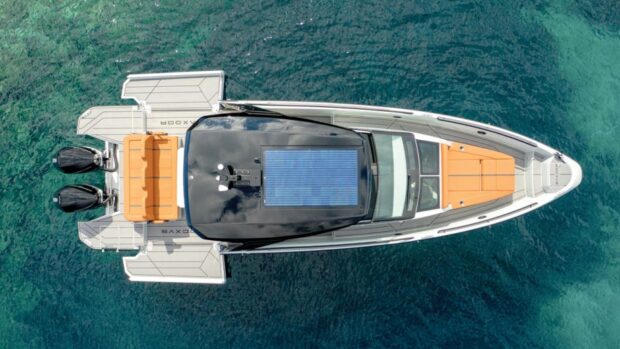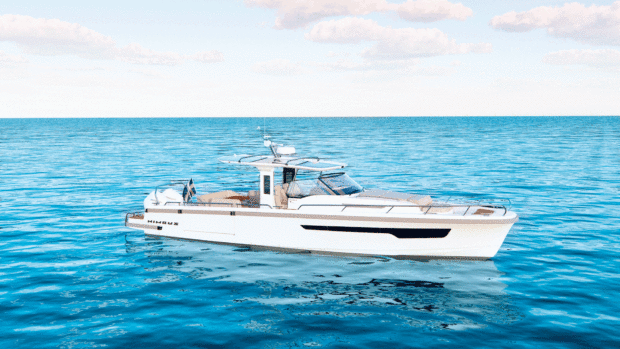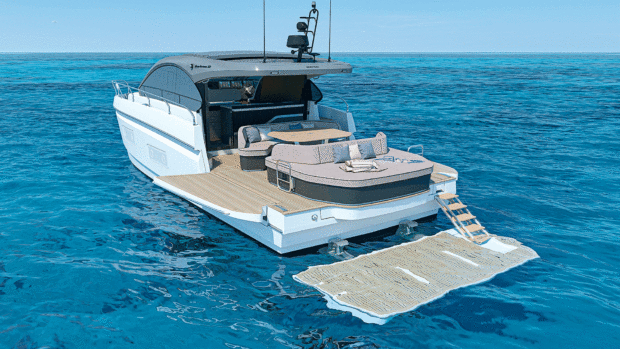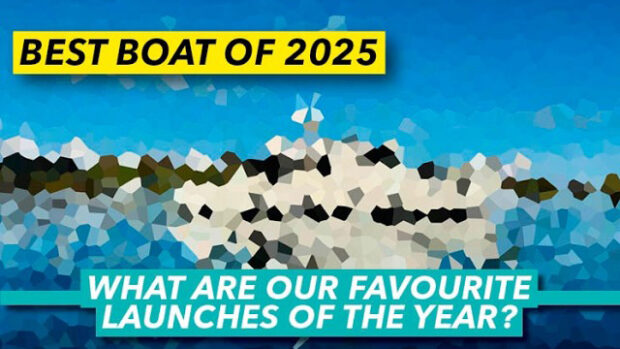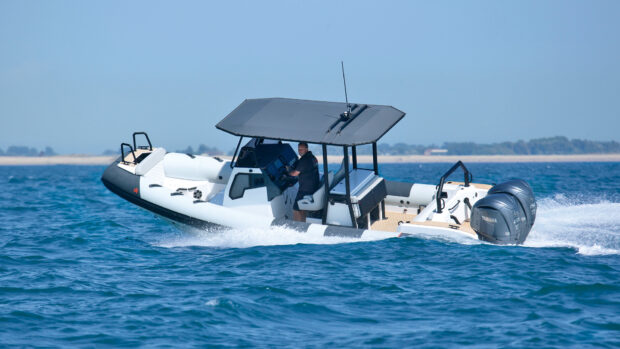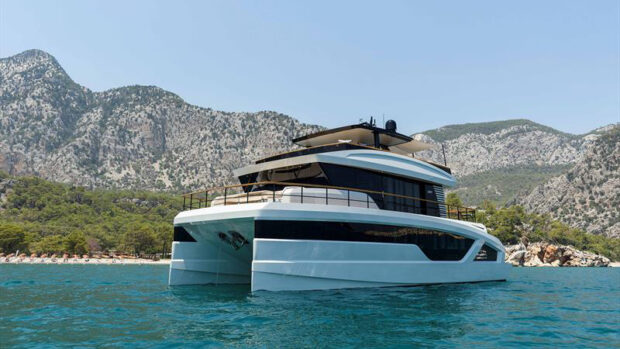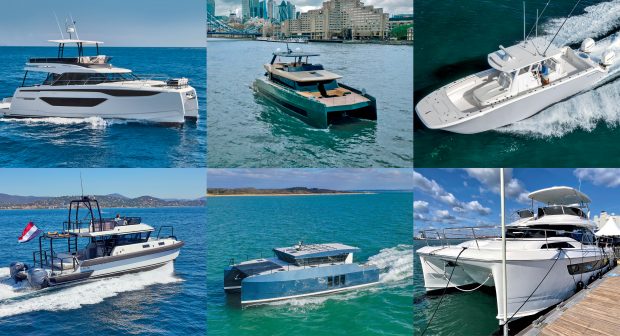Help shape future EU maritime policy; answer by 28 Feb
No sooner have the European Commission given their damning verdict on red diesel, than boaters are being asked to give their views on another EC document that could change the future of their pastime.
The European Maritime Green Paper, titled ‘Towards a future Maritime Policy for the Union: A European vision for the Oceans and Sea’, aims to stimulate debate on the future direction of EU policy on a number of maritime issues.
Among the topics up for discussion are how an integrated approach to maritime affairs be implemented in the EU – something which thousands of UK boaters will no doubt have ready answers for in light of the recent EC decision to block the use of red diesel.
Another suggestion would see an annual conference on best practice in maritime governance be held.
Shipping Minister Stephen Ladyman has published a consultation paper on the document and is asking for views from across the marine industry.
Dr Ladyman said: “The responses, together with input from the recent UK stakeholder conference on 12 October, will inform the UK Government’s response to the Commission.
“The European Commission intends to develop formal proposals based on the outcome of a Europe-wide consultation and it is vital that the UK has a strong, informed voice in this process. So it’s important that all UK maritime interests reflect on the document and send us their comments.”
Those wishing to comment on the proposals should do so before the consultation ends on 28 February 2007.
Questions raised in the EU Maritime Green Paper (by section)
1. INTRODUCTION
Should the EU have an integrated maritime policy?
How can the EU add value to the many national, local and private initiatives which already exist in the maritime field?
2. RETAINING EUROPE’S LEADERSHIP IN SUSTAINABLE MARITIME DEVELOPMENT
2.1 A Competitive Maritime Industry
How can European maritime sectors remain competitive, including taking into account specific needs of SMEs?
What mechanisms should be in place to ensure that new maritime development is sustainable?
2.2 The Importance of the Marine Environment for the Sustainable Use of our Marine Resources
How can maritime policy contribute to maintaining our ocean resources and environment?
How can maritime policy further the aims of the Marine Thematic Strategy?
How can risk assessment best be used to further safety at sea?
2.3 Remaining at the Cutting Edge of Knowledge and Technology
How can a European Marine Related Research Strategy be developed to further deepen our knowledge and promote new technologies?
Should a European Marine Research Network be developed?
What mechanisms can best turn knowledge into income and jobs?
In what ways should stakeholders be involved?
2.4 Innovation under Changing Circumstances
What further steps should the EU take to mitigate and adapt to climate change in the marine environment?
How can innovative offshore renewable energy technologies be promoted and implemented?
How can energy efficiency improvements and fuel diversification in shipping be achieved?
What is needed to realize the potential benefits of blue biotechnology?
2.5 Developing Europe’s Maritime Skills and Expanding Sustainable Maritime Employment
How can the decline in the number of Europeans entering certain maritime professions be reversed and the safety and attractiveness of jobs ensured?
How can better working conditions, wages and safety be combined with sectoral competitiveness?
How can the quality of education, training and certification be assured?
2.6 Clustering
What role can maritime clusters play in increasing competitiveness, in particular for SMEs, in improving the attractiveness of maritime jobs, and promoting a sense of maritime identity?
How can the EU promote synergies between interrelated sectors?
The Regulatory Framework
How could the regulatory framework for the maritime economy be improved to avoid unintended and contradictory impacts on maritime goals?
Which exclusions of the maritime sector from some EU social legislation are still justified?
Should further specific legal instruments on employment conditions in the maritime sector be encouraged?
How can EU safety regulation be simplified while maintaining high level standards?
To what extent can economic incentives, self-regulation and corporate social responsibility complement government regulation?
What further EU action is needed to deal with the inadequacies of sub-standard flags and to provide incentives to register under European flags?
Should an optional EU register be made available? What conditions and incentives could be contemplated for such a register?
How should the Common Fisheries Policy be further developed to achieve its aim of sustainable fisheries?
3. MAXIMISING QUALITY OF LIFE IN COASTAL REGIONS
3.1 The Increasing Attraction of Coastal Areas as a Place to Live and Work
How can the quality of life in coastal regions of Europe be maintained, while continuing to develop sustainable income and jobs?
What data need to be made available for planning in coastal regions?
3.2 Adapting to Coastal Risks
What must be done to reduce the vulnerability of coastal regions to risks from floods and erosion?
What further cooperation is needed in the EU to respond adequately to natural disasters?
How can our shores and coastal waters be better policed to prevent human threats?
3.3 Developing Coastal Tourism
How can innovation in services and products related to coastal tourism be effectively supported?
What specific measures promoting the sustainable tourism development of coastal regions and islands should be taken at EU level?
3.4 Managing the Land/Sea Interface
How can ICZM be successfully implemented?
How can the EU best ensure the continued sustainable development of ports?
What role can be played by regional centers of maritime excellence?
4. PROVIDING THE TOOLS TO MANAGE OUR RELATIONS WITH THE OCEANS
4.1 Data at the Service of Multiple Activities
On what lines should a European Atlas of the Seas be developed?
How can a European Marine Observation and Data Network be set up, maintained and financed on a sustainable basis?
Should a comprehensive network of existing and future vessel tracking systems be developed for the coastal waters of the EU?
What data sources should it use, how would these be integrated, and to whom would it deliver services?
4.2 Spatial Planning for a Growing Maritime Economy
What are the principles and mechanisms that should underpin maritime spatial planning systems?
How can systems for planning on land and sea be made compatible?
4.3 Making the Most of Financial Support for Coastal Regions
How can EU financial instruments best contribute to the achievement of maritime policy goals?
Is there a need for better data on coastal regions and on maritime activities?
How should maritime policy be reflected in the discussions relating to the next EU Financial Framework?
5. MARITIME GOVERNANCE
5.1 Policy Making within the EU
How can an integrated approach to maritime affairs be implemented in the EU?
What principles should underlie it?
Should an annual conference on best practice in maritime governance be held?
5.2 The Offshore Activities of Governments
How can the EU help to stimulate greater coherence, cost efficiency and coordination between the activities of government on EU coastal waters?
Should an EU coastguard service be set up? What might be its aim and functions?
For what other activities should a “Common European Maritime Space” be developed?
5.3 International Rules for Global Activities
How can the EU best bring its weight to bear in international maritime fora?
Should the European Community become a member of more multilateral maritime organizations?
What action should the EU undertake to strengthen international efforts to eliminate IUU fisheries?
How can EU external policy be used to promote a level playing field for the global maritime economy and the adoption of sustainable maritime policies and practices by third countries?
5.4 Taking Account of Geographical Realities
What regional specificities need to be taken into account in EU maritime policies?
How should maritime affairs be further integrated into the EU’s neighbourhood and development policies?
6. RECLAIMING EUROPE’S MARITIME HERITAGE AND REAFFIRMING EUROPE’S MARITIME IDENTITY
What action should the EU take to support maritime education and heritage and to foster a stronger sense of maritime identity?
Further information is available from the DfT website www.dft.gov.uk
